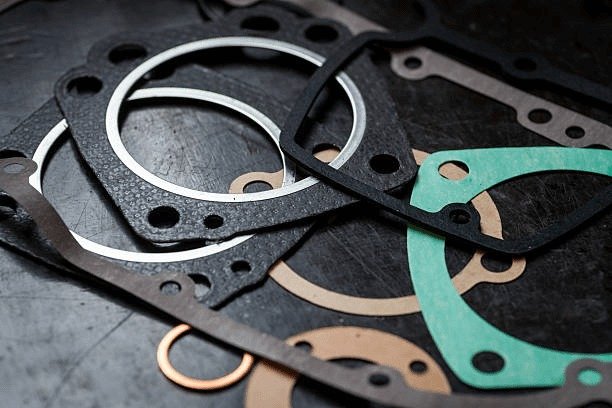When it comes to skincare, sometimes the simplest tools deliver the most powerful results. Among these, the African net sponge has emerged as a natural, effective, and eco-friendly way to achieve healthy, glowing skin. Celebrated for its exfoliating properties and cultural heritage, this unique sponge has captured the attention of beauty enthusiasts around the world.
What is an African Net Sponge?
The African net sponge is a bath and skincare accessory made from interwoven fibers, forming a delicate net-like structure. Unlike regular sponges, its design allows for gentle exfoliation while stimulating blood circulation. Traditionally, these sponges were handcrafted in African communities using natural fibers, making them not only effective but also sustainable.
Over time, modern adaptations have introduced synthetic options for added durability. Regardless of material, the primary purpose remains the same: to cleanse, exfoliate, and rejuvenate the skin.
Historical and Cultural Roots
In many African cultures, bathing was not merely a routine for cleanliness but also a ritual for health and self-care. These sponges were integral to daily bathing practices, offering a gentle yet thorough way to cleanse the body.
Crafted by hand, the sponge often reflected local traditions, using fibers sourced from plants and natural resources. Over generations, this simple yet effective tool became a symbol of beauty, wellness, and cultural identity.
How the African Net Sponge Works
The sponge’s net structure is designed for more than just cleaning—it works on multiple levels:
- Exfoliation: Its textured surface removes dead skin cells, promoting smoother, brighter skin.
- Circulation: The gentle scrubbing action stimulates blood flow, which can enhance skin health and vitality.
- Deep Cleansing: Unlike ordinary sponges, the net structure helps unclog pores and remove impurities effectively.
Whether used with soap, body wash, or exfoliating gels, the African net sponge offers a comprehensive approach to skincare.
Key Benefits of the African Net Sponge
1. Gentle Yet Effective Exfoliation
One of the main reasons the African net sponge is popular is its ability to exfoliate without harsh scrubbing. Regular exfoliation helps reduce rough patches, smoothen the skin’s texture, and promote natural radiance.
2. Boosts Blood Circulation
Using this sponge isn’t just about surface-level cleaning. The massaging motion improves circulation, supporting nutrient delivery to skin cells.
3. Helps Prevent Skin Problems
By removing dead skin cells and unclogging pores, the African net sponge can reduce the risk of acne, blackheads, and ingrown hairs. Its gentle exfoliation also minimizes irritation, making it an ideal tool for maintaining long-term skin health.
4. Eco-Friendly and Sustainable
Unlike synthetic bath loofahs or disposable sponges, many African net sponges are biodegradable and reusable. Choosing one supports sustainable skincare practices while reducing environmental waste.
How to Use the African Net Sponge
To maximize the benefits of the African net sponge, follow these steps:
- Preparation: Soak the sponge in warm water to soften its fibers.
- Apply Cleanser: Add a small amount of soap or shower gel to the sponge.
- Exfoliate: Using circular motions, gently scrub your skin, focusing on rough areas like elbows, knees, and feet.
- Rinse: Thoroughly rinse your skin and the sponge after use.
- Frequency: For most people, using it 2–3 times a week is ideal. Overuse may lead to irritation.
Caring for Your African Net Sponge
Proper care ensures the sponge remains effective and hygienic:
- Rinse Thoroughly: Remove all soap residue after each use.
- Dry Completely: Squeeze out excess water and hang in a dry, airy place.
- Avoid Damp Storage: Prevent bacterial growth by keeping the sponge dry.
- Replace Regularly: Even with proper care, replace every 3–6 months for optimal hygiene.
Choosing the Right African Net Sponge
When selecting a sponge, consider these factors:
- Material: Natural fibers are soft and eco-friendly, while synthetic options are more durable.
- Texture: Match the sponge’s roughness to your skin sensitivity. Softer sponges are ideal for delicate skin; firmer textures for intensive exfoliation.
- Size: Ensure it’s comfortable to hold and can reach all areas of the body.
- Authenticity: Handmade African sponges often carry traditional craftsmanship and cultural value.
African Net Sponge in Modern Skincare
Today, the African net sponge is widely recognized beyond Africa.
Its popularity aligns with trends in sustainable and minimalist skincare. Unlike chemical exfoliants or disposable products, this sponge offers a simple, reusable solution that promotes healthy skin while respecting the environment.
Tips for Maximum Benefits
- Combine with Natural Oils: Pairing the sponge with oils like shea or coconut can enhance moisturization while exfoliating.
- Use Warm Water: Warm water helps open pores, allowing for deeper cleansing.
- Be Gentle: Avoid aggressive scrubbing, which can damage the skin.
- Routine Integration: Incorporate it into your skincare routine 2–3 times per week for consistent results.
Conclusion
The African net sponge is more than a cleansing tool—it is a bridge between tradition and modern skincare. With its gentle exfoliation, circulation-boosting benefits, and eco-friendly design, it has rightfully earned a place in homes around the world.
Whether you are exploring natural skincare solutions, aiming to maintain smooth and radiant skin, or seeking sustainable beauty practices, the African net sponge offers a perfect balance of effectiveness, simplicity, and cultural heritage.
By choosing this sponge, you embrace a skincare routine that honors both your skin and the environment while benefiting from a centuries-old tradition of self-care and wellness.










